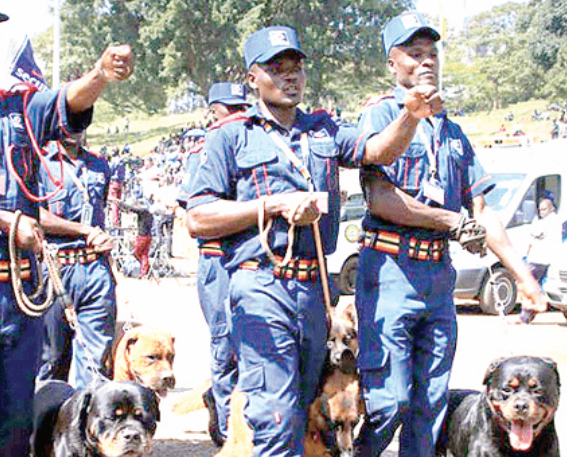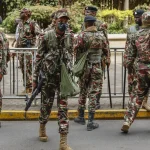Private security guards tasked with high-risk duties and protecting critical infrastructure will potentially be armed under a proposed amendment to the law. The aim is to relieve the burden on the currently overstretched 10,000 guards assigned to safeguarding State installations, allowing them to focus on core responsibilities such as protecting lives and property and addressing broader national security goals.
The Private Security Regulatory Authority (PSRA) has drafted the Private Security Regulation (Amendment) Bill 2024, which seeks to amend existing regulations to permit the arming of private security guards. If enacted, this amendment would authorize the controlled issuance, ownership, and operational use of firearms by selected private security officers.
Interior Cabinet Secretary has emphasized that integrating armed security guards into the national security framework will promote a more cohesive and unified approach to security across various sectors.
“Private security firms can serve as force multipliers, augmenting the efforts of national security organs in safeguarding critical infrastructure, public events, and sensitive establishments at no additional cost to the government,” the ministry said.
PSRA is a government agency and is charged with the responsibility of regulating the private security industry in accordance with the Act and the values and principles set out in the Constitution.
Stringent supervision
PSRA Chief Executive Officer Fazul Mohamed said arming of private guards will be implemented under stringent regulatory supervision, ensuring adherence to established safety protocols for handling firearms and related operational use of firearms.
“Pursuant to Section 45 of the Act, there is a statutory obligation for licensed entities within the private security sector to collaborate with National Security Organs to uphold public order and safety,” Fazul wrote.
Fazul further said high-risk assignments include public spaces characterised by high human traffic, shopping malls, cash in transit, maritime security, critical infrastructure, government institutions and institutions identified with elevated vulnerabilities and security risks.
Criminal threats
In the routine performance of their duties, private security personnel frequently form the initial barrier against criminal threats, including acts of terrorism and armed aggression.
“The absence of defensive capabilities and security equipment significantly compromises their ability to safeguard themselves and the public effectively.”
“This limitation not only endangers their safety but also impedes their capacity to execute their responsibilities comprehensively of protecting lives and property. In the recent past a number of security guards have been killed while on duty by armed criminals,” he added.
The PSRA boss said the enactment of the Bill will not occasion additional expenditure of public funds.
“To the contrary, it will facilitate on-boarding of private security officers into the national security infrastructure at zero cost to the government,” he said.
According to a proposed Cabinet memo, the amendment shall facilitate the issuance, possession and use of firearms by security guards under strict regulatory oversight and compliance with established safety protocols.
He said that currently, more than 10,000 police officers are engaged in providing security services that are defined as private security services, thus do not align with the fundamental core duties of the National Police Service.
“This proposed legislative amendment aims to equip private security personnel, thereby reallocating police resources to address broader national security objectives. Consequently, this will liberate in excess of 10,000 police officers, allowing them to concentrate on their core mandate of safeguarding lives and property,” Fazul said.
A comparative analysis of jurisdictions that allow security guards to be armed, according to PSRA, offers valuable insights into the efficacy and consequences of such policies. Countries like the United States of America and South Africa have embraced the practice of arming security guards to offer services in high-risk sectors such as banks and government facilities.



